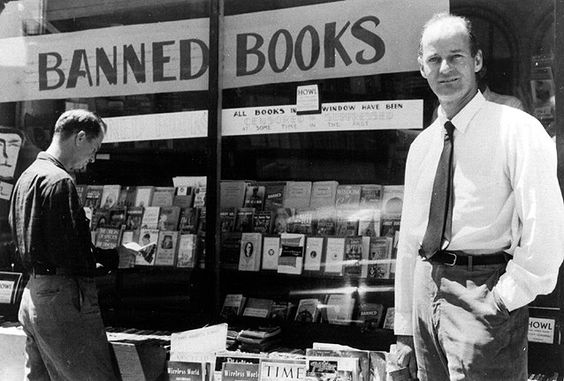
(Note: This editorial originally appeared in the August, 2022 edition of Children’s Book Insider, the Children’s Writing Monthly)
Dear Reader:
Laura recently hosted an episode of the Kidlit Social featuring the founders of #FReadom Fighters, a group of Texas librarians pushing back against an effort by state legislators seeking to ban certain books from libraries. (You can watch it here: writeforkids.org/blog/kidlitdistancingsocial82)
The response was overwhelmingly positive. The nominal bit of pushback we received, however, argued that the proposed book bannings were intended solely to keep explicit pornographic imagery out of school libraries, and that those pushing back against censorship were doing so for purely political reasons.
explicit pornographic imagery out of school libraries, and that those pushing back against censorship were doing so for purely political reasons.
We take feedback from our readers very seriously, so I want to use this as an opportunity to share a few thoughts on the matter.
Are We Actually Arguing About the Same Thing?
We live in a highly politicized age. And, regardless of where you are on the political spectrum, we are subject to media outlets and politicians who find it far easier to provoke and inflame us, rather than unite and connect us.
One way they do this is by creating alternate framings of certain issues that may distort the actual subject at hand. In this particular case, we are told that a group of Texas legislators are fighting to keep obscene and pornographic material out of the hands of children.
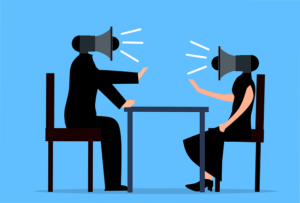 Positioned that way, it’s hard to find fault. Of course children shouldn’t see explicit pornographic imagery. And, if we were giving exposure to a group of librarians who believe kids should be able to access hardcore pornography, we certainly would leave ourselves open to warranted criticism.
Positioned that way, it’s hard to find fault. Of course children shouldn’t see explicit pornographic imagery. And, if we were giving exposure to a group of librarians who believe kids should be able to access hardcore pornography, we certainly would leave ourselves open to warranted criticism.
It’s fair game to debate whether certain books are age-appropriate, or provide good-faith discussions of sensitive topics. But that’s not what’s happening in Texas.
The reality of the Texas situation (and others around the country) is that the use of the word “pornography” is wildly misleading. And, because the framing of a topic is much easier to share and disperse than the actual matter of the topic, the framing typically wins out in setting the agenda.
The movement to ban library books stems from a Texas politician named Rep. Matt Krause. Have a look at the books he and his colleagues have targeted to ban (bit.ly/tx-booklist).
You’ll quickly see it’s about far more than pornographic sexual material.
Here are some of the books included on the proposed ban list:
- Racial Justice in America: Topics for Change
- The Confessions Of Nat Turner by William Styron
- The Cider House Rules
- The Abortion Battle: Looking At Both Sides
- It’s So Amazing!: A Book About Eggs, Sperm, Birth, Babies, and Families
- They Called Themselves The K.K.K.: The Birth Of An American Terrorist Group
- The Ultimate Guys’ Body Book: Not-So-Stupid Questions About Your Body
- October Mourning: A Song For Matthew Shepard
- The Undivided Past: Humanity Beyond Our Differences
- Respecting The Contributions Of LGBT Americans
- Eyes On Target Inside Stories from the Brotherhood of the U.S. Navy Seals
- Tell Me Again How A Crush Should Feel
- Considering Hate: Violence, Goodness, and Justice in American Culture and Politics
- Launching Our Black Children for Success: A Guide for Parents of Kids from Three to Eighteen
- Peaceful Fights For Equal Rights
- Everything You Love Will Burn: Inside the Rebirth of White Nationalism in America
- An African American and Latinx History of the United States
- The Indian Removal Act and the Trail of Tears
- The Handmaid’s Tale
- The New Jim Crow: Mass Incarceration in the Age of Colorblindness
- A High Five for Glenn Burke (a novel inspired by the first openly gay Major League baseball player)
- Race and the Media In Modern America
As you leaf through 16 pages of book titles, it becomes pretty clear that this isn’t really about “pornographic” books at all — it’s about preventing young people from being exposed to ideas that fall outside the political beliefs of certain people.
We’re talking about books that simply acknowledge things like homosexuality, race, discrimination, treatment of Native Americans and sexuality as topics worthy of age-appropriate discussion.
For one to consider a book featuring a gay baseball player or a book about the Native American Trail of Tears to be pornographic, one has to see the ideas in the books as obscene. If you do, that is your right as an American. But no one has the right, particularly via the government, to impose that conclusion on anyone else. Especially in public schools or libraries.
How we understand and relate to one another, and how we, as a society, move forward on issues of individual liberties, personal bodily autonomy, racial equality, gender equality and other fundamental issues will determine whether we have a successful society in the future — or a future at all.
The way to do that is by trusting teachers and librarians to do the job they were trained for — giving balanced, age-appropriate treatment to these topics with a wide range of viewpoints. They can’t do that if half of those viewpoints are banned.
(And yes, this does go both ways. Intolerance and illiberalism can come from the left as well. No one is immune from the notion that they, and only they, know what’s best for everyone else.)
Is the Problem What’s in the Books — or that the Books Exist At All?
You may or may not be of the opinion that homosexuality is an acceptable topic for young readers. And you may or may not be of the opinion that discussing the treatment of minorities and Native Americans throughout American history may be too guilt-inducing for white students to endure.
Again, you’re absolutely free to have those opinions. But you don’t get to decide things for everybody else.
What we can debate is how we go about addressing these vitally important issues in our nation. But we can’t just erase half of the conversation because it might make a child feel anxious or upset about what happened in the past, or because those books don’t align with a particular political, religious or cultural view we may have.
We all should feel anxious and upset about some of the things in our history, just as we should feel proud and patriotic about many other things. But, in either case, we — no matter our color or political affiliation — are not personally responsible for any of those events, and deserve neither credit nor blame.
We are, however, responsible for addressing the impact of those troubling events, just as we are responsible for carrying on the grand traditions that have made America a great nation.
And the way to do that is to introduce different viewpoints to our children, so they understand that history and culture are narratives, and narratives can be written from many viewpoints. Just providing one viewpoint does our children a disservice and guarantees that our society will continue to be torn into pieces.
One Event, Multiple Viewpoints. What is the “Truth”?
As a kid, I was told Columbus discovered America. It was only many years into adulthood when I thought “Wait, how can we say a place where millions of people were already living was ‘discovered’?”
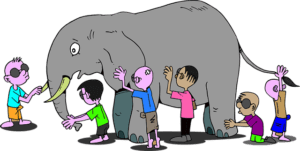 But that’s what happens when only one viewpoint — in this case, the European viewpoint — is offered. No one in Europe knew the place existed so, in their minds, it was a new discovery. Now we know that there are always two sides to history, and the story of Columbus takes on a very different tone when told from the perspective of the millions of people who were already here and whose way of life was about to be altered forever.
But that’s what happens when only one viewpoint — in this case, the European viewpoint — is offered. No one in Europe knew the place existed so, in their minds, it was a new discovery. Now we know that there are always two sides to history, and the story of Columbus takes on a very different tone when told from the perspective of the millions of people who were already here and whose way of life was about to be altered forever.
Both sides are true, from the perspective of the people who wrote them, so let’s teach both and use critical thinking to suss out the ultimate truth. That’s what education should be about, not indoctrination into one way of thinking about things.
The books I listed above — the books these Texas legislators seek to ban — are not pornographic. Rather, they are books that provide a different viewpoint.
What This Means for Writers
For authors, it can sometimes feel as if we are under attack from all sides. We live in an age where everyone is on high alert, everyone has staked out a position and nuance is a distant memory.
As we sit down to craft our work, we cannot help but feel the weight of potential landmines that may await us. Am I practicing cultural appropriation? Do I have the right to give voice to a character whose ethnicity or culture differs from my own? Am I expressing ideas some parents (or legislators) may take issue with? Will I be attacked for promoting an “agenda”?
give voice to a character whose ethnicity or culture differs from my own? Am I expressing ideas some parents (or legislators) may take issue with? Will I be attacked for promoting an “agenda”?
And even “If this gets published, could I actually be putting myself at personal risk?”
Those are heavy, heavy questions, and there are no pat answers. But free societies only remain that way if people fearlessly express, distribute, and, if need be, defend a wide range of views and ideas.
There are certainly things you can do to to avoid many of the issues that could end up putting you in a harsh spotlight:
First, find the answer to this vital question:
If someone takes offense to the content of this book, would it be based on a legitimate concern, or would it be purely political or cultural grandstanding?
That’s probably not a question you can answer on your own, so start some conversations with the people around you. Most importantly, try to find some folks who have opposing social or political viewpoints and run the idea past them. If you don’t know anyone like that, think about where you might find them.
Nonprofit organizations, religious institutions, colleges, and media outlets are fertile territory for discovering people who hold viewpoints that represent the audience who may take issue with your work.
A friendly email or letter asking to open a brief but important dialog could open the door to a positive and enlightening discourse. (Something we could use a whole lot more of.)
You’ll likely get one of these results:
- What you thought would be problematic turns out to be no big deal. If so, carry on and write.
- You discover that there are reasonable objections to be had, and you rework your story to overcome them.
- You hear objections, but they seem unreasonable, reactionary or ideological. In this case, you can seek more feedback to determine whether those objections can be rightfully ignored.
Some Tools at Your Disposal
If you’re writing a book outside of your own cultural experience, use the tools available to you to bypass potential trouble. Sensitivity readers are a fantastic resource to help ensure fair and accurate representations (visit bit.ly/3PHaj9n for more on this topic). Our workshop The Courage to Write Outside Your Own Experience with Teresa Funke is a phenomenal guide to give you tools and courage to break out of your cultural comfort zone. (Get more details here: bit.ly/3ciGDRw)
If you’re writing about hot-button cultural or political issues, it’s always worth the time to visit with your local school or public librarian. They’re on the front line of the censorship battle and can provide up-to-the-minute input on the bumps you may encounter.
The Structure for Assuring Fairness Is Already in Place. Use It.
The purpose of this discussion is not to generate a debate about LGBTQIA+, Black Lives Matter, abortion, religion or any other subject matter. Goodness knows there’s more than enough screaming and yelling out there already.
Rather, we share these views because of the people we ultimately serve — children’s writers, and the children and parents they reach — and our desire to see sane, rational discussion and compromise replace banning, canceling and government intervention to address differences in opinion.
So here is our plea:
If, as a parent or citizen, you have a concern with how a particular subject is being taught, or whether the balance of available information fairly represents all sides, don’t empower a politician to ban books.
Rather, reach out and start a respectful conversation with librarians, school administrators and your child’s teacher. You may learn something, the person you’re conversing with may learn something and you might just create constructive change.
It is not the job of the government to pick and choose the viewpoints that introduce our children to our past and our present. It is, however, the job of teachers, parents and librarians to assure that a broad selection of reputable and age-appropriate material is available to kids, and that someone is there to help them absorb, make sense and synthesize this information into a world view that is fact-based, empathetic, decent and honorable.
I hope that’s something all of us can agree upon.
Please share your thoughts in the comments section.
All the best,
Jon Bard, Co-Owner of Children’s Book Insider
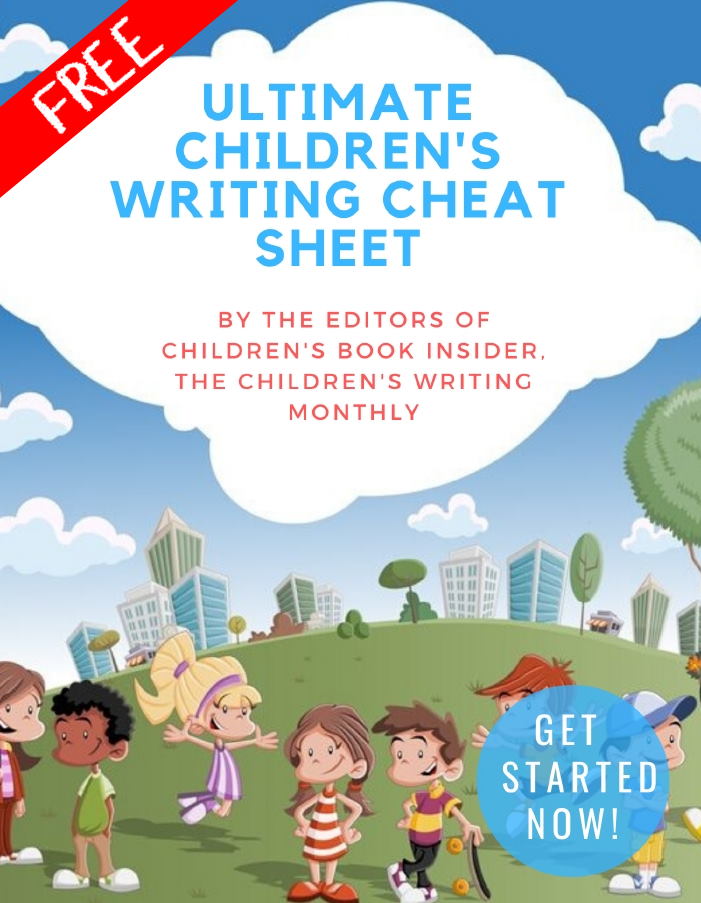
✏ Word Counts & Age Groups for Every Kidlit Category
✏ FAQs, Glossaries and Reading Lists
✏ Category-specific Tips, from Picture Books Through Young Adult Novels
✏ 5 Easy Ways to Improve Your Manuscript
✏ Writing For Magazines …and more!
This is a gift from the editors of Children’s Book Insider, and there’s no cost or obligation of any kind.
We will never spam you or share your personal information with anyone. Promise!
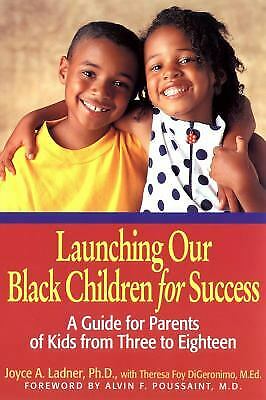
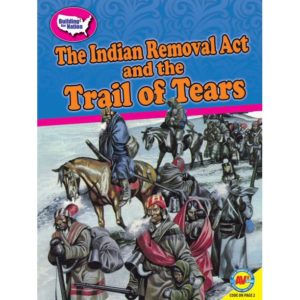
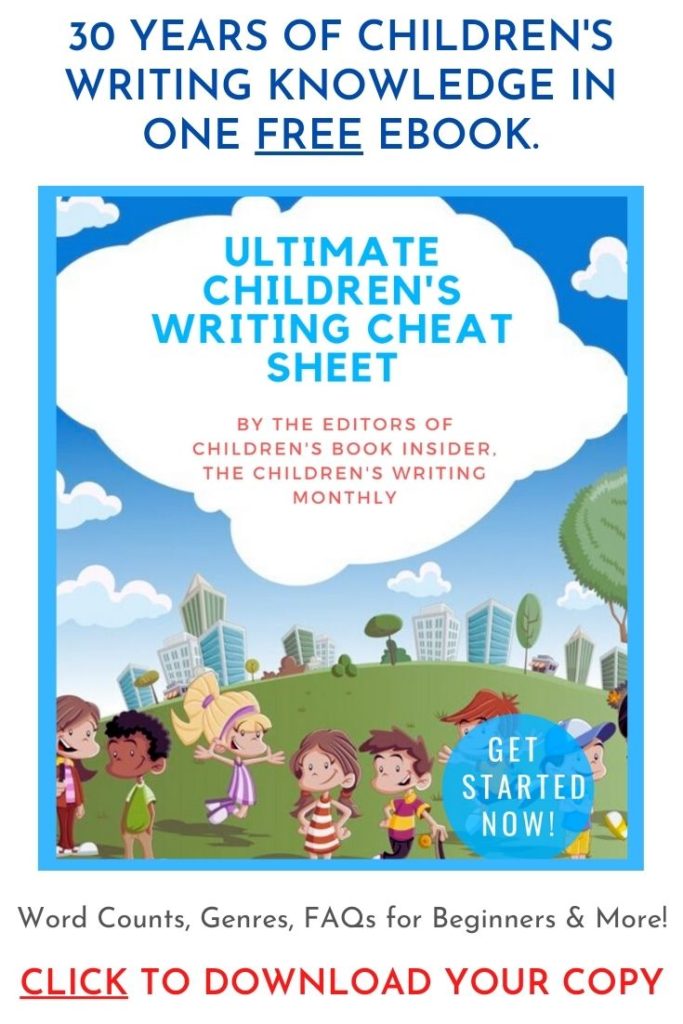
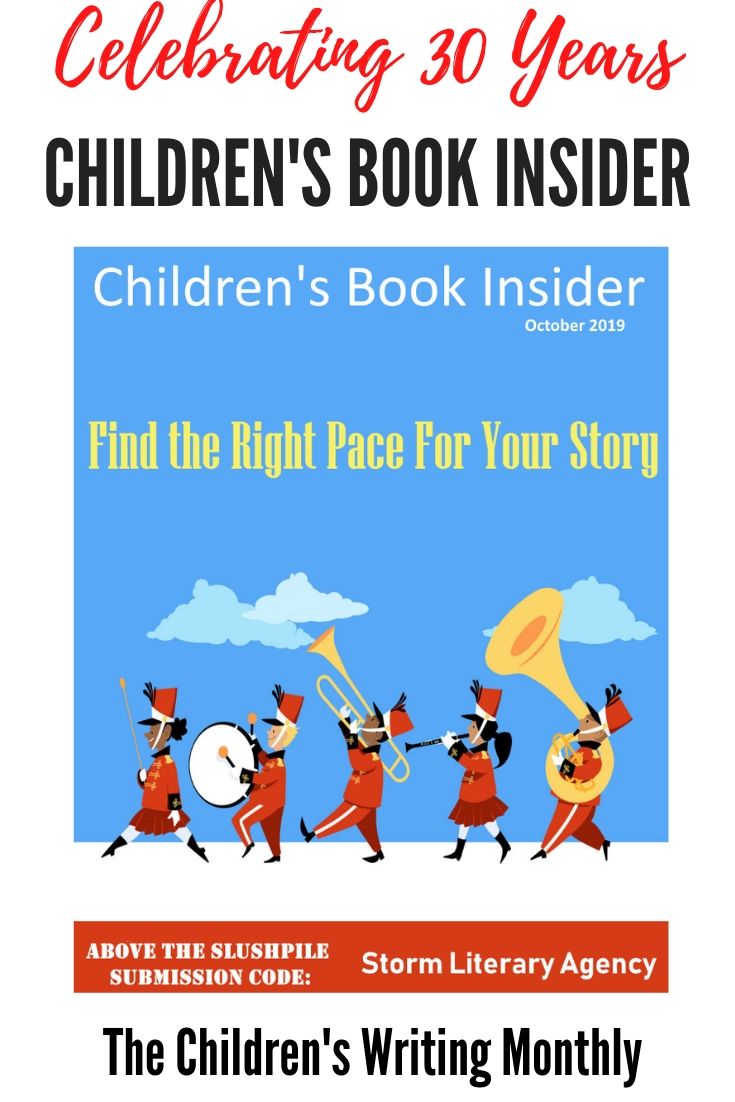
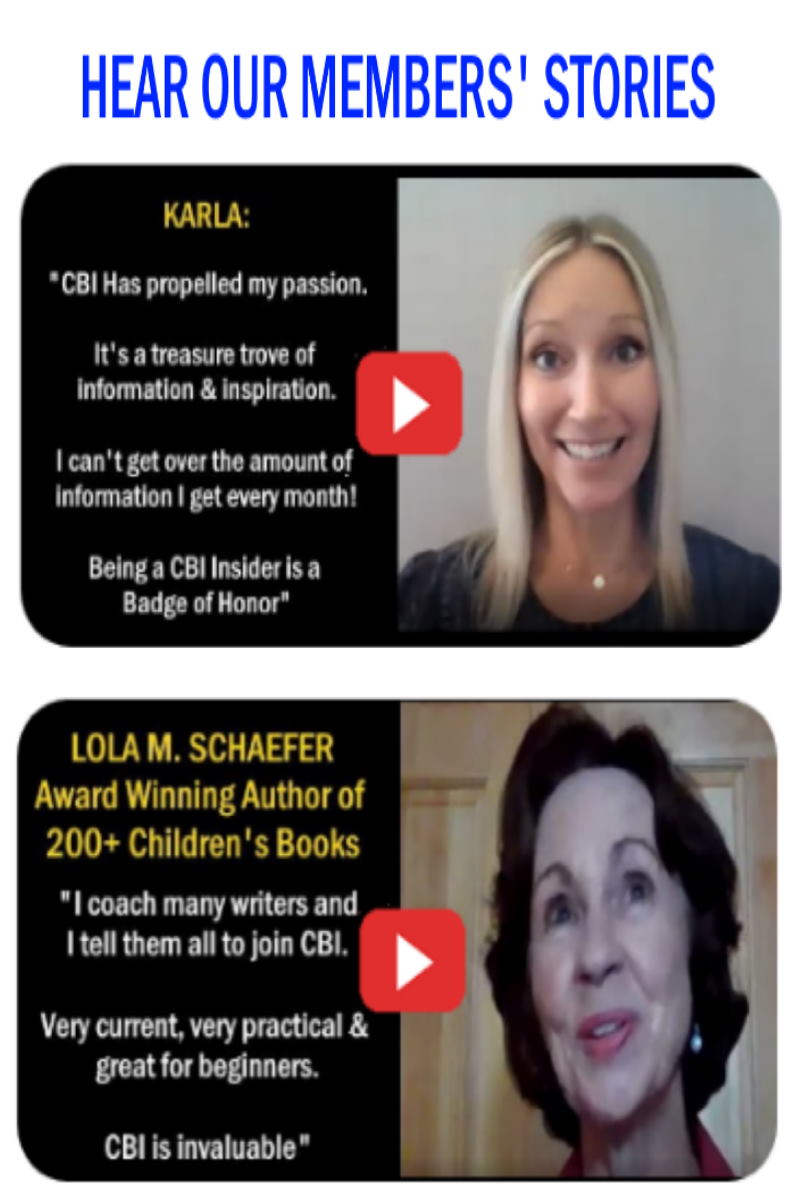
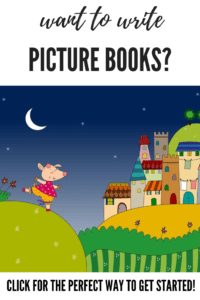


At the end of the day, it’s as simple as the definition of pornography, which according to Merriam-Webster is:
1 : the depiction of erotic behavior (as in pictures or writing) intended to cause sexual excitement
2 : material (such as books or a photograph) that depicts erotic behavior and is intended to cause sexual excitement
3 : the depiction of acts in a sensational manner so as to arouse a quick intense emotional reaction
the pornography of violence
If any item in question does not *depict* erotic behavior, it does not fit the definition. Is it going to take millions of dollars in legal fees to prove this? If it gets to the Supreme Court, will they also ignore clear definitions and allow the states to define things as they choose?
The problem lies in definition #3: “the depiction of acts in a sensational manner so as to arouse a quick intense emotional reaction.” Even mayonnaise on white bread can cause an “intense emotional reaction” in some people. (I just finished reading a book that quotes what would ordinarily be a yawn-inducing, multi-syllabic, scientific treasty–except that it’s describing the mating ritual of giant slugs, which, in context, turns out to be highly erotic) Hence the problem with regulations that rely on “pornography” to define appropriateness for any particular audience.
When the insane run the house what can you expect. Fear of the truth is dangerous.
It’s clear, these people do not read. Only read what they want to acknowledge.
“The truth is what I say it is!” (Ned Beaty as Senator Charles Meachum in the movie Shooter, 2007)
As you pointed out, the ban or attempt to ban is not about getting rid of “pornographic” books despite those pro-ban individuals purporting to want to save their children from “unseeing those images.” They also say young people are being “groomed” re LGBTQ+ and gender oriented titles or being influenced toward activism re race issues or made uncomfortable. Who are they kidding? It is exactly what you wrote. “Preventing young people from being exposed to ideas that fall outside the political beliefs of certain people.” Well, I trust librarians, and the intelligence of readers and their
book choices. Parents and politicians need to step back from these negative efforts and let those trained for this do their jobs.
It’s a no-brainer. This sort of censorship is attempting social engineering. If the boot was on the other foot with progressives banning kids’ books on military history, stories incl. use of weapons, or violence among comic book heroes like Superman et al and Hollywood’s pushing of militarist movies, these politicians would be calling to uphold free speech.
Tom Flood, I agree with you completely. I was thinking the same thing when I was reading down the list of books. The book that gets me the most is The Trail of Tears. That is our history and like it was said in the article, “We all should feel anxious and upset about some of the things in our history, just as we should feel proud and patriotic about many other things. But, in either case, we — no matter our color or political affiliation — are not personally responsible for any of those events, and deserve neither credit nor blame.”
None of this would be happening though if it was about anything that had to do with military or sports or anything else “America”related. We are all America and American and we wouldn’t be here today if it wasn’t for what our past went through. Right or Wrong. History repeats itself and we need to make sure we have these books so our children can learn from them and not repeat the past.
Agreed. It’s all part of the same playbook. People have to recognize that both parties are big government driven. The difference being that one wants to socialize at 100 mph and the other at 50 mph. Control of the population is mandatory to achieve this.
The inmates have clearly taken over the institution. This type of censorship is no better than what the Taliban does, and it’s only starting. The people who are doing this have no problem banning books because they don’t read. We should be terrified.
Politicians don’t read because they want the history and future to be of their making. The late Rush Limbaugh said it perfectly when he quipped: “No one goes to Washington except to make money for themselves and their backers.” Several volumes could fill in the gaps of that statement.
Thank you for this cogent, non-inflammatory piece. Book banning is not new but the intensity of the rhetoric right now is chilling. If we all take some action — large or small — we can be beacons of light in this dark time. One action idea: Support and lift up Banned Books Week, September 18 – 24. Here is a link to the Banned Book Week Coalition, “an international alliance of diverse organizations joined by a commitment to increase awareness of the annual celebration of the freedom to read. The Coalition seeks to engage various communities and inspire participation in Banned Books Week through education, advocacy, and the creation of programming about the problem of book censorship.” https://bannedbooksweek.org/sponsors/
I do not want book censorship. However, if the “someone” there to help children “absorb, make sense and synthesize” information does not explain all sides of topics, then therein lies a problem. The BLM movement has some good points, but it also fights for the disintegration of the nuclear family. A LGBT+ lifestyle is fine for some, but it can lead to drugs, suicide, and disease. Abortion in the case of rape or incest may be a terrible necessity, but in the ninth month it can be viewed as murder. When books on both sides of issues are made available, are reputable, and age-appropriate, there is not a problem. However, there is a problem when the “someone” helping the child “absorb” information has their own prejudices and wants to impart them to children. All too often books today do not show both sides of issues or fully explain them. Having been a teacher for decades, I read only children’s books. Today it is difficult to find any new book that celebrates masculinity, femininity, two-parent (male husband/female wife) families, or straight life-styles. Yet research continues to show that children raised in intact nuclear families are much better prepared for adulthood. The breakdown of the family is the number one reason for gangs, drug-use, and crime. We do not need book censorship, but it is imperative that the gate keeper of books – the teachers and the librarians – do not show prejudice one way or the other. Parents, of course, always have the right to decide which books are appropriate and which are not.
As a retired educator, I cannot speak loudly enough about the importance of discovery, shared inquiry, discussion and the powerful value of knowledge sought by curious minds.
Some of the books listed I’ve used in my classroom. Great books–inspiring discussion, empathy, sympathy and/or understanding.
Now, as an author, I’m given to wonder if my writing will be approved or accepted by those reading it. Even if the subject matter is sensitive in nature, by using common-sense and discretion, I believe the material should be in print at an appropriate age level for those seeking truth, validation, and/or information.
Welcome to Dystopia. When education is deemed dangerous by government actors, it’s time to VOTE the bums out.
Not all of the books that we read will necessarily align with our thoughts – but we need a diverse range of books to create healthy discussion and understanding. This, in turn, will educate both us and our children and allow us to not recreate the mistakes of our past. What we DO NOT NEED is for those diverse publications to disappear. It’s obvious from the list, that the person who created it has never read any of the books on it. I’m not in America but, if this ban goes ahead, it will affect more than America.
When I find things confusing I get curious…what is at the heart of this conversation? At the risk of putting words into people’s mouths, I think that people are afraid and desperately want to protect their children from a world that would hurt them. I think that could be said to be true for BOTH sides of this debate. So here we find common ground. Thank you for framing this discussion in a way that helps us to turn TOWARD each other…it’s the only way out of this maelstrom.
It is a sad day in the US when book banning and the de-funding of libraries becomes the norm. Democracy is being chipped away. Those books don’t appear to be pornographic but then again to justify their actions, they have to say something. Pornographic is a triggering word.
If we let book banning take over who knows where it will stop? Will we be unable to read the Bible or other religious books? I’m all for limiting pornography exposure it only true pornography, not some twisted interpretation. Just as a limited gene pool can destroy a species, so can limiting access to different views on race etc. We need to exercise our rights to freedom of the press and equal opportunities.
I consider myself an open-minded conservative (yes, there is such a thing), teacher, and parent. I believe the only people who have the right to withhold a book from a child for inappropriate material is that child’s parent. I may choose not to use materials in my classroom, but that does not take away the right of the parent to read and discuss any materials they see fit for their children. As my children were growing up, if they chose a book I questioned, I would read it first, or with them. That way we could discuss the book. Yes, there were books I deemed inappropriate for my children at certain ages, but that was my decision. My children were taught values and morals and, as they grew, they were able to make decisions on their own based on their own values.
As far as books dealing with history, all children need to know their history. If it offends them or makes them sad, all the more likelihood that they will not repeat that history, but defend those who were wronged.
Thanks for your thoughtful but passionate words. It is a strange feeling for an Australian reader to find book banning going on in America known to be such an ardent supporter of democracy. Similar kinds of things may be happening here but book banning isn’t in the public spotlight – yet!
This is scary over-reach by politicians, who are increasingly infringing on the rights of citizens. Definitions are constantly changing to fit their narrative and drive their agendas. It is true that parents need to be responsible in having discsussions and guiding mature content with their children. Parents, NOT politicians determine what is appropriate for their families, and how to approach the topics.
To lie about the truth does not change the truth. Hiding the truth from our children will not make it disappear. All I can say is VOTE! VOTE! VOTE!
I am both angered and terrified by the intensity of the current attacks on our society and our freedoms by those who think they can make up the rules by which we live. Book banning is nothing new, but we haven’t had an attach this frightening in a long time (if ever). As another responder commented, “Vote, vote, vote!” Let me add, “Get out and campaign for those who will attempt to maintain a sensible balance in Washington.
It’s just another tactic to exert top-down control of the masses, by a few uber-rich and powerful. Sigh.
Sad and scary times we live in, but I think all of us here have in common the respect and appreciation that books can bring to the lives of children…most likely because we benefited somehow as children ourselves.
I pray that enough people wake up to the closing in on our world, from all sides, and we can stop this madness…but I think it must get a lot worse before it gets better, because many humans tend to ignore what doesn’t cause them personally pain or suffering. And it seems such a small minority are willing so far to do something about it.
Thanks for bringing this to light on this forum. We need more cohesion, and less division. I pray for the children.
I am furious at the narrow-minded dunderhead of my state. Years ago, there were issues with the information Texas was putting in textbooks that weren’t true. There was a couple on the board who consistently stood up for what was right. I can’t say I’m not surprised. I’m sure if I called those legislators’ offices I would be ignored.
I don’t know if contacting some of the major television stations with their blatant racism and insensitivity would make a difference. My knowledge of Texas politics regarding where the stations fit into the scheme of things is zero.
This saddens and hurts to know people in my state are acting in this way.